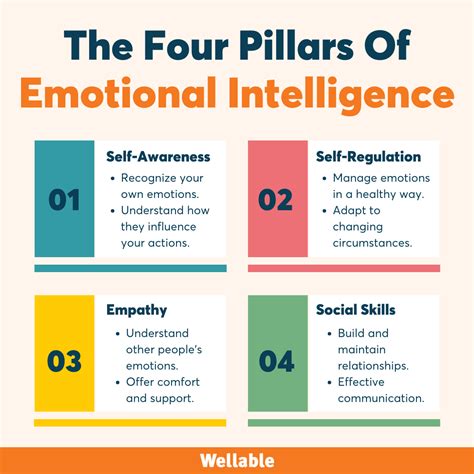Welcoming a tiny human into your life is a dream cherished by many couples worldwide. The idea of nurturing a new life, witnessing their laughter and guiding them through the ups and downs of existence is both exciting and fulfilling. However, before embarking on this incredible adventure, it is crucial to be well-prepared. Preparing for the journey to parenthood involves meticulous planning, emotional readiness, and ensuring a healthy foundation for your future family.
Setting the stage for the arrival of a little one involves various aspects, including:
- Optimizing your physical well-being: It's important for both partners to achieve and maintain good health. Nurturing your bodies with balanced nutrition, regular exercise, and paying attention to preconception care will create a harmonious environment for conception and pregnancy. Remember, a healthy body can better support the growth and development of a future baby.
- Fostering emotional stability: Alongside physical health, emotional readiness is key when starting a family. Bringing a baby into the world introduces joy, but also the occasional stress and sleepless nights. Couples should take the time to strengthen their relationship, establish effective communication patterns, and discuss expectations for parenting. This emotional groundwork will pave the way for a supportive and loving atmosphere as you navigate the challenges of raising a child.
- Financial planning: Welcoming a baby brings additional financial responsibilities. It is important to review your current financial situation, create a budget, and plan for the expenses associated with pregnancy, childbirth, and the first years of your child's life. By establishing a solid financial foundation, you can minimize stress and focus on enjoying the precious moments with your newborn.
- Educating yourself: Knowledge is power, especially when it comes to pregnancy and parenting. Taking the time to educate yourself on topics such as fertility, conception, pregnancy, childbirth, and parenting styles will enhance your confidence and preparedness. Attend childbirth classes, participate in parenting workshops, and discuss concerns with your healthcare provider to ensure you have the necessary knowledge and resources.
Remember, embarking on the journey to parenthood is an incredible adventure that requires careful planning and preparation. By focusing on physical well-being, emotional stability, financial planning, and education, you can confidently step into this transformative phase of life. Embrace the joy and challenges that come with starting a family, knowing that you have laid a solid foundation for a bright future.
Evaluate Your Health and Lifestyle

Take a closer look at your overall well-being and the choices you make in your daily life to ensure you're ready for the exciting journey of starting a family.
Assess Your Physical Health
It's important to evaluate your physical health to understand how it may impact your ability to conceive and carry a baby. Schedule a visit with your healthcare provider for a comprehensive check-up, including tests to assess your reproductive health, hormone levels, and any underlying medical conditions that may affect fertility. Additionally, make sure you are up to date with your vaccinations to protect both yourself and your future baby.
Adopt a Healthy Lifestyle
Take steps to maintain a healthy lifestyle by following a balanced diet, engaging in regular exercise, and avoiding harmful habits such as smoking, excessive alcohol consumption, and drug use. A well-nourished body and a fit physique can contribute to optimal fertility and increase your chances of a successful pregnancy. Prioritize self-care and manage stress levels by incorporating relaxation techniques like yoga or meditation into your routine.
Consider Environmental Factors
Take into account the environment you live in and the substances you are exposed to on a daily basis. Limit your exposure to harmful chemicals, such as pesticides, cleaning products, and toxins. Opt for natural and organic alternatives whenever possible. Evaluate the quality of the air you breathe, the water you consume, and the products you use around your home to create a safe and healthy environment for you and your future family.
Evaluate your Emotional Well-being
Emotional well-being plays a crucial role when preparing to start a family. Reflect on your mental health and seek support if needed. Discuss any concerns, fears, or anxieties with your partner or a trusted professional. Taking care of your emotional well-being will not only benefit you but also contribute to a stable and nurturing environment for your future child.
Establish a Supportive Network
Having a strong support system is invaluable during the journey of starting a family. Surround yourself with family, friends, or support groups that understand and uplift you. Share your dreams and aspirations with those closest to you, as they can offer valuable advice, encouragement, and emotional support throughout the process.
In conclusion, evaluating your health and lifestyle is an essential step in preparing for the exciting milestone of starting a family. Taking care of your physical and emotional well-being, adopting a healthy lifestyle, and creating a supportive network can greatly enhance your chances of a successful pregnancy and a fulfilling parenting experience.
Schedule a Preconception Check-Up
Before embarking on the exciting journey of growing your family, it's important to prioritize your health and well-being. A preconception check-up can be a crucial step in ensuring that you and your partner are prepared both physically and emotionally for the upcoming conception process.
During a preconception check-up, a healthcare professional will assess your overall health, address any existing medical conditions or concerns, and provide personalized recommendations to optimize your chances of a successful pregnancy. This check-up is not only beneficial for women but also for men, as it helps identify any potential fertility issues and allows for timely intervention if needed.
- Medical history: Your doctor will inquire about your medical history, including any chronic illnesses, previous pregnancies, surgeries, or any medications you are currently taking. This information helps them assess your current health status and determine any potential risks or concerns.
- Lifestyle factors: The healthcare provider will discuss your lifestyle habits, such as smoking, alcohol consumption, and drug use. They may offer guidance on making healthy choices and suggest any necessary lifestyle changes to optimize fertility and promote a healthy pregnancy.
- Nutrition and supplements: Proper nutrition plays a vital role in reproductive health. The doctor will provide recommendations on a balanced diet that includes essential nutrients like folic acid, iron, and calcium. Depending on your specific needs, they may also suggest supplements to ensure adequate levels of these nutrients.
- Immunizations: Vaccinations are essential for both partners to protect against certain infections that can be harmful during pregnancy. Your healthcare provider will review your vaccination history and administer any necessary immunizations to safeguard your health and the health of your future baby.
By scheduling a preconception check-up, you can take proactive steps towards optimizing your fertility and ensuring a healthy pregnancy. The personalized guidance and recommendations provided by healthcare professionals can significantly increase your chances of successfully conceiving and having a healthy baby.
Assess Your Emotional Preparedness

Before embarking on the journey of starting a family, it is essential to evaluate your emotional readiness for this significant life change. It involves reflecting on various aspects of your emotions, feelings, and mindset to ensure that you are prepared mentally and emotionally to become a parent.
| Reflect on your desires and aspirations |
| Take some time to ponder your desires and aspirations when it comes to building a family. Consider the importance of having children and whether you genuinely feel a strong desire and readiness to take on the responsibilities and joys of parenthood. |
| Evaluate your ability to handle stress and challenges |
| Parenting comes with its fair share of stress and challenges. Assess your ability to cope with these pressures and manage stress effectively. Parenthood demands emotional strength and resilience, and evaluating your emotional preparedness can help you understand if you are equipped to handle the ups and downs that come with raising a child. |
| Consider your support system |
| Having a strong support system is crucial when starting a family. Reflect on the availability of family members, friends, or other support networks that can provide you with emotional support, practical assistance, and guidance throughout your parenting journey. Assessing your support system will help you gauge the level of emotional support you can rely on as you transition into parenthood. |
| Examine your relationship dynamics |
| Assess the quality and stability of your relationship with your partner. Communication, understanding, and shared values are vital components of a healthy parenting partnership. Reflect on how well you and your partner align on important aspects of raising a family, as this will significantly impact your emotional preparedness for starting a family together. |
| Seek professional guidance if needed |
| If you have concerns or uncertainties about your emotional preparedness for parenthood, consider seeking guidance from a licensed therapist or counselor. They can provide valuable insights, help address any emotional blocks, and guide you in developing the necessary emotional tools to embark on this new chapter in your life. |
By assessing your emotional readiness, you can gain a deeper understanding of your desire and ability to start a family. Taking the time to reflect and evaluate your emotional preparedness will help ensure that you are well-equipped to provide a loving and nurturing environment for your future child.
Consider Your Financial Situation
When thinking about planning for the future and potentially starting a family, it's important to take into consideration your financial state. Understanding and evaluating your financial situation can help you make informed decisions and ensure that you are financially prepared to support a family.
Here are some key factors to consider when assessing your financial readiness:
- Income Stability: Assess the stability of your current income and employment. A steady and reliable income is essential for meeting the financial demands of raising a child.
- Debt Management: Evaluate your existing debts, such as student loans, credit card debt, or mortgages. It's important to have a plan in place for managing and paying off your debts to alleviate financial stress.
- Emergency Fund: Build an emergency fund to handle unexpected expenses that may arise during pregnancy or after the birth of a child. This can provide a safety net for any unforeseen medical expenses or job loss.
- Budgeting and Savings: Create a comprehensive budget that includes not only your current expenses but also anticipated costs related to child-rearing. Consider expenses like healthcare, childcare, education, and living expenses.
- Insurance Coverage: Review your health insurance coverage to ensure it will adequately cover the costs of prenatal care, delivery, and ongoing healthcare for both you and your child.
- Long-Term Financial Planning: Start thinking about long-term financial goals, such as saving for education or retirement. It's essential to have a plan in place to secure your family's financial future.
By taking the time to assess your financial situation and make necessary adjustments, you can help ensure that you're financially prepared to embark on the journey of starting a family.
Ensuring Adequate Folate Intake

One important step in preparing for the journey of welcoming a new addition to your life is ensuring that you are taking the necessary precautions to support a healthy pregnancy. A key aspect of this preparation is ensuring adequate intake of folic acid.
Why is folic acid important?
Folic acid, also known as vitamin B9, plays a vital role in the development of a baby's neural tube. Adequate levels of folic acid are essential in the early stages of pregnancy to help prevent neural tube defects, such as spina bifida. It also supports the development of the baby's brain and spinal cord.
How much folic acid should you take?
The recommended daily amount of folic acid for women planning or capable of pregnancy is 400 micrograms (mcg). However, it is generally advised to start taking folic acid supplements at least one month before conception and continue taking them throughout the first trimester of pregnancy. This ensures that your body has enough folate to support the growth and development of your baby.
Sources of folic acid
Folic acid can be obtained through both diet and supplements. Good dietary sources of folic acid include leafy green vegetables, citrus fruits, beans, and fortified cereals. However, it may be challenging to meet the recommended daily amount through diet alone, making supplementation a helpful option. Folic acid supplements are widely available over the counter and can be easily incorporated into your daily routine.
Consult with your healthcare provider
Before starting any new supplement or medication, it is crucial to consult with your healthcare provider. They can provide personalized advice on the appropriate dosage and duration of folic acid supplementation based on your specific needs and medical history. They may also recommend additional prenatal vitamins or tests to further optimize your chances of a healthy pregnancy.
Remember, by taking the necessary steps to ensure adequate folate intake, you are actively setting the foundation for a healthy pregnancy and supporting the optimal development of your future little one.
Review Your Medications and Vaccinations
It is important to carefully consider the medications you are currently taking and ensure they are safe to continue while planning for a baby. Additionally, reviewing your vaccinations is crucial to protect both you and your future child from preventable diseases.
During the process of preparing to start a family, it is essential to evaluate the medications you are currently prescribed. Certain medications may have potential risks or side effects that could affect fertility or pose a risk to a developing fetus. It is recommended to consult with your healthcare provider, who can guide you on which medications are safe to continue using or may suggest alternatives.
Furthermore, reviewing your vaccinations is an important aspect of preparing for pregnancy. Vaccinations can protect against various diseases that can pose a risk to both you and your future child. It is vital to ensure that your vaccinations are up to date and discuss any necessary boosters with your healthcare provider.
| Actions to Consider | Additional Information |
|---|---|
| Consult with your healthcare provider about your current medications | Your healthcare provider can provide guidance on continuing, adjusting, or switching medications to ensure safety during pregnancy. |
| Review your vaccination history and ensure all necessary vaccines are up to date | Vaccinations may include influenza, measles, mumps, rubella, chickenpox, hepatitis B, and others. |
| Discuss any potential risks or concerns associated with specific medications or vaccines | Some medications may need to be adjusted or discontinued before trying to conceive, while certain vaccines may require special considerations. |
| Stay updated on any new guidelines or recommendations related to medications and vaccinations during pregnancy | Medical guidelines may change over time, so it is essential to remain informed about the latest updates. |
In conclusion, thoroughly reviewing your medications and vaccinations is a crucial step in preparing for pregnancy. By ensuring the safety and effectiveness of your current medications and staying up to date on vaccinations, you can protect both yourself and your future child from potential risks and preventable diseases.
Adopt a Healthy Diet and Exercise Routine

Embracing a nourishing and well-balanced diet, along with incorporating regular physical activity into your daily routine, can greatly support your readiness for embarking on the beautiful journey of Parenthood. Taking care of your body and preparing it for the excitement and challenges ahead is of utmost importance.
Opting for a wholesome and nutritious diet sets the foundation for a healthy pregnancy and promotes optimal fertility. Focus on consuming a variety of fresh fruits, vegetables, whole grains, and lean proteins, while limiting processed foods and sugary drinks. Aim for a well-rounded intake of essential vitamins and minerals, such as folic acid, iron, calcium, and omega-3 fatty acids, which are crucial for reproductive health.
Engaging in a regular exercise routine not only improves physical fitness but also plays a significant role in boosting fertility and preparing your body for the potential demands of pregnancy. Engage in activities that you enjoy, such as walking, swimming, yoga, or cycling. However, it is essential to consult with your healthcare provider before starting any new exercise regimen to ensure it aligns with your unique circumstances and medical history.
Maintaining a healthy weight is also paramount when planning to conceive. Both being underweight and overweight can impact fertility and increase the risk of complications during pregnancy. Strive for a balanced weight through a combination of healthy eating and regular exercise.
In addition to physical well-being, prioritizing your mental and emotional well-being is equally essential. Stress can significantly affect fertility, so it is vital to incorporate stress-reducing activities like meditation, deep breathing exercises, and regular sleep into your daily routine.
Remember, establishing and maintaining a healthy diet and exercise routine not only enhances your chances of conceiving but also sets the stage for a healthy and vibrant pregnancy, ultimately contributing to a positive and joyful start to your journey as a family.
Creating a Healthier Lifestyle for Starting a Family
When embarking on the journey of parenthood, it is essential to foster a healthy lifestyle that will not only benefit you but also provide a nurturing environment for your future child. Making conscious choices to prioritize your well-being can improve your chances of conception and contribute to a smooth pregnancy.
Here are some key considerations to help you lay the foundation for a healthier lifestyle:
- Maintain a Balanced Diet: Optimal nutrition plays a vital role in reproductive health. Including a variety of fruits, vegetables, whole grains, lean proteins, and healthy fats in your diet can provide the essential nutrients needed for fertility and ensure a healthy pregnancy.
- Engage in Regular Exercise: Incorporating physical activity into your daily routine not only improves overall fitness but also enhances reproductive health. Aim for at least 30 minutes of moderate exercise most days of the week to boost fertility and manage stress levels.
- Manage Stress Levels: High levels of stress can negatively impact fertility. Explore stress-reducing techniques such as meditation, deep breathing exercises, or engaging in activities that bring you joy to promote emotional well-being.
- Maintain a Healthy Body Weight: Both overweight and underweight individuals may experience fertility challenges. Achieving a healthy body weight through a combination of a balanced diet and regular exercise can increase the chances of conception.
- Limit Alcohol and Caffeine Consumption: Excessive alcohol and caffeine intake have been linked to fertility issues. It is advisable to reduce alcohol consumption and limit caffeine intake to moderate levels to support reproductive health.
- Quit Smoking: Smoking has a detrimental effect on fertility in both men and women. Quitting smoking is not only beneficial for conception but also crucial for a healthy pregnancy and the overall well-being of your future child.
- Ensure Sufficient Sleep: Prioritize getting adequate sleep to support hormonal balance and overall health. Aim for 7-9 hours of quality sleep per night to optimize your chances of conceiving.
- Visit Your Healthcare Provider: Regular check-ups with your healthcare provider are crucial for preconception planning. They can provide personalized guidance, identify any underlying health issues, and offer relevant recommendations to enhance your fertility journey.
By making healthier lifestyle choices, you are taking proactive steps towards creating an optimal environment for starting your family. Remember, every positive change you make has the potential to impact not only your fertility but also the future well-being of your child.
Understanding Your Fertile Window

It is important for individuals or couples who are anticipating the possibility of having a child to grasp the concept of their fertile window. This crucial timeframe refers to the specific days during a woman's menstrual cycle when she is most fertile and has the highest chance of conceiving.
Recognizing and understanding your fertile window is essential for those seeking to maximize their chances of getting pregnant. By tracking various fertility signs, such as changes in cervical mucus consistency, monitoring basal body temperature, and utilizing ovulation kits, individuals can identify this fertile period.
1. Monitoring Cervical Mucus: By paying attention to changes in the consistency and color of cervical mucus, it is possible to determine when a woman is approaching her fertile period. As ovulation draws near, the mucus typically becomes clear, slippery, and similar to the texture of egg whites.
2. Tracking Basal Body Temperature: Basal body temperature (BBT) refers to a person's temperature when at complete rest. By recording the BBT daily, individuals can observe a slight rise in temperature after ovulation, indicating which days are most fertile. This method requires consistency and may take a few cycles to establish a pattern.
3. Utilizing Ovulation Kits: Ovulation prediction kits are reliable tools that assist in identifying the fertile window. These kits detect a surge in luteinizing hormone (LH) in the urine, which typically occurs one to two days before ovulation. The presence of a positive LH surge indicates that ovulation is likely to happen within the next 24-36 hours.
By comprehending the concept and methods of tracking the fertile window, individuals or couples can increase their chances of conceiving and starting a family. Understanding these fertility signs allows for strategic planning and timing of intercourse, optimizing the chances of successful conception.
Seek Support and Gather Resources
When embarking on the journey of expanding your family, it is crucial to surround yourself with a strong support system and acquire the necessary resources to ensure a smooth transition into parenthood. Connecting with others who have gone through similar experiences can provide valuable insights and emotional support, while gathering relevant information and materials can equip you with the knowledge and tools needed for this new chapter in your life.
Building a network of support can take various forms, such as joining parenting groups, attending community events, or seeking guidance from professionals in the field. Connecting with individuals who have gone through the process of starting a family can offer a wealth of knowledge and practical advice. Their firsthand experiences and shared stories can provide reassurance and guidance, helping you navigate the twists and turns of the journey.
In addition to seeking support from others, it is important to gather the necessary resources that will assist you in your preparation. This can include books, articles, online forums, and reputable websites that offer reliable and up-to-date information on topics such as conception, pregnancy, childbirth, and newborn care. Educating yourself about the physical, emotional, and practical aspects of starting a family can give you confidence and a solid foundation as you embark on this new adventure.
Furthermore, exploring available resources related to healthcare, financial planning, and legal considerations is essential. Understanding your options and making informed decisions about healthcare providers, insurance coverage, budgeting for baby-related expenses, and legal documentation can alleviate stress and ensure that you are adequately prepared for the financial and legal aspects of starting a family.
Remember, seeking support and gathering resources is not only beneficial for your own well-being but also for the overall health and happiness of your future family. Taking the time and effort to build a strong support system and equip yourself with essential resources will help you feel empowered and prepared as you embark on this exciting and transformative journey.
FAQ
What are some important steps to take when preparing to start a family?
Preparing to start a family involves several important steps such as ensuring both partners are healthy, consulting with a healthcare professional, and making necessary lifestyle changes.
Is it necessary to consult with a healthcare professional before trying for a baby?
Yes, it is highly recommended to consult with a healthcare professional before trying for a baby. They can provide guidance on overall health, preconception care, and address any concerns or medical conditions that may affect fertility or pregnancy.
How can I improve my chances of getting pregnant?
Improving your chances of getting pregnant involves maintaining a healthy lifestyle, tracking your menstrual cycle, having regular sexual intercourse, and considering fertility awareness methods or ovulation prediction kits.
Are there any changes in lifestyle that should be made when preparing for a baby?
Yes, there are several lifestyle changes that can be made when preparing for a baby. These include quitting smoking, limiting alcohol consumption, maintaining a balanced diet, exercising regularly, and managing stress levels.
How long does it usually take to get pregnant?
The time it takes to get pregnant can vary for each couple. On average, it may take a few months to a year of trying. If you have been actively trying for over a year without success, it may be advisable to consult with a healthcare professional for further evaluation and assistance.
What are some important things to consider when preparing for trying for a baby?
When preparing for trying for a baby, it is important to consider your physical health, finances, and emotional readiness. It is recommended to schedule a preconception check-up with your doctor, maintain a healthy lifestyle, and start taking prenatal vitamins. You should also evaluate your financial situation and make necessary arrangements to support a child. Additionally, it is essential to ensure that you and your partner are emotionally ready for the challenges and responsibilities of parenthood.
Should I make any changes in my lifestyle before trying to conceive?
Yes, making certain lifestyle changes before trying to conceive can have a positive impact on your chances of getting pregnant and having a healthy pregnancy. It is advisable to quit smoking, reduce or eliminate alcohol consumption, and limit caffeine intake. Maintaining a healthy weight through proper diet and regular exercise is also important. You should also ensure you are up to date with your vaccinations and avoid exposure to harmful chemicals or substances.



